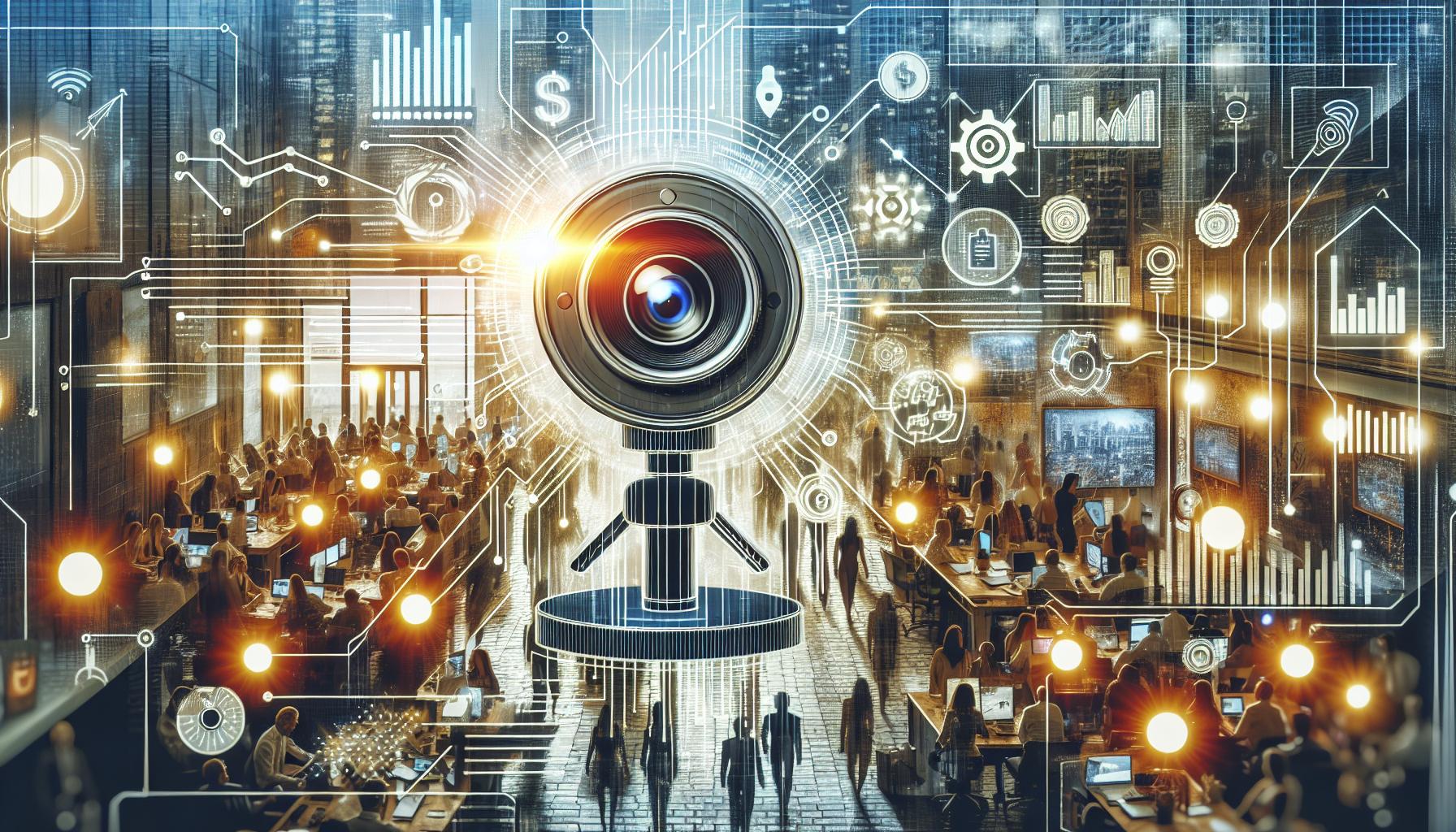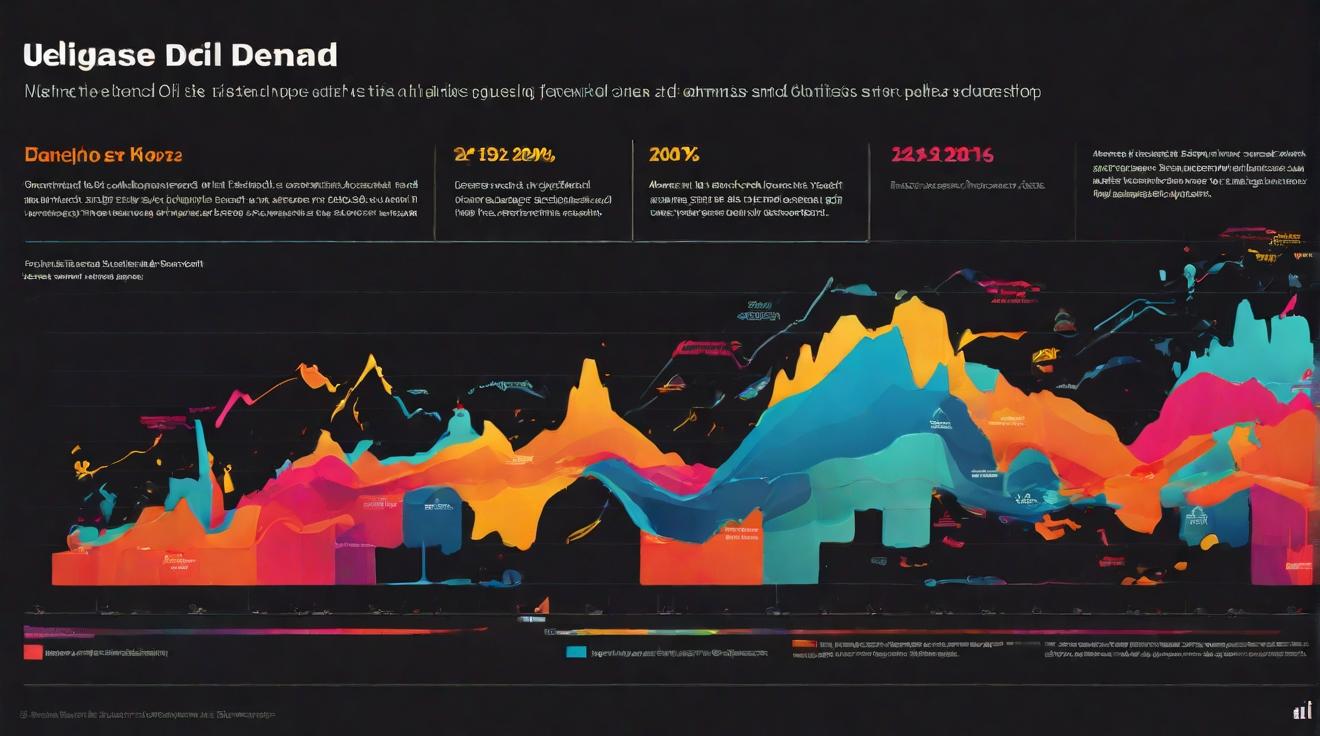The Rise of Generative AI and Personalised Content Recommender Systems
Technology has always had a touch of magic to it. As Arthur C Clarke famously said, “Any sufficiently advanced technology is indistinguishable from magic.” And in the digital age, this sense of magic has become even more pronounced thanks to the rise of generative AI and personalized content recommender systems. These technologies have made it easier than ever to project a sense of mysticism onto our digital experiences.
Spirituality and mysticism have found a home online, with many people turning to platforms like TikTok and astrology apps for guidance and insight. The algorithms behind these platforms, powered by generative AI, seem to have an uncanny ability to serve up content that feels eerily perfect for each individual user. It’s no wonder that people often wonder at the mysterious omnipotence of The Algorithm.
While there’s nothing inherently wrong with finding wonder and inspiration in technology, it’s important to recognize the potential risks that come with collapsing magic and technology. Tarot card readers and astrology apps can be fun and entertaining, but they can also be used by grifters looking to make a quick buck. By leveraging our tendency to anthropomorphize technology and gaming social media algorithms, these grifters can create a false sense of insight and enlightenment.
Chatbots and Apps: Will They Trick or Truly Guide Us?
With the development of OpenAI’s large language model GPT-4, a new wave of religious and spiritual chatbots has emerged. These chatbots claim to offer personalized guidance and conversations in various spiritual traditions, from Christianity to paganism. For some, these chatbots may provide a source of amusement or curiosity. But it’s important to question their true value and authenticity.
Apps like CoStar, known for their sassy and witty responses, now feature chatbot options that allow users to seek generated guidance for a small fee. While these chatbots can be entertaining, we must remember that their responses are ultimately generated by algorithms, not actual spiritual beings. As with any digital tool, it’s important to approach them with a critical eye and not place too much faith in their responses.
When Magic and Technology Collide: Risks and Pitfalls
The merging of magic and technology can have its pitfalls. While some online communities genuinely engage in spiritual practices and form meaningful connections, there is also a risk of cultural commodification and dilution. This is particularly true for communities that align themselves with a neoliberal spirituality that focuses on hyper-individualistic self-improvement.
When spiritual practices are detached from their cultural and religious origins, they can lose their authenticity and become mere trends fueled by social media. This can lead to unsustainable market demands for products like crystals and white sage smudge sticks. It’s important to be mindful of the origins and cultural significance of these practices and avoid commodifying them for personal gain or trendy aesthetics.
From Sacred Traditions to Neoliberal Spirituality: The Impact of Social Media
Social media platforms have both positive and negative impacts on spiritual communities. On one hand, they enable individuals with shared interests in spirituality to connect and form online communities. This can be a source of support and growth for many individuals, particularly those who may not have access to local offline communities.
However, social media can also contribute to the diminishment and adulteration of sacred traditions. The focus on individual self-improvement and the commodification of spirituality can lead to a neoliberal spirituality that divorces itself from the cultural and sociopolitical roots of many practices. This can result in a shallow and consumer-driven approach to spirituality that fails to address the larger societal issues that these practices were originally meant to challenge.
The Illusion of Magic: Unveiling the True Nature of Technology
While it’s tempting to attribute magic to technology, it’s important to remember that technologies like generative AI and personalized recommender systems are designed to generate value from their users. Any profound experience from these tools ultimately comes from us, the humans, not the technology itself.
It’s crucial to maintain a critical perspective and not fall into the trap of being awestruck by the shiny interface or convenience of technology without considering the underlying interests and imperatives of the companies behind it. When we misattribute magic to technology, we risk overlooking the real limitations and consequences of these technologies, whether it’s exacerbating social inequalities through automation or relying on exploited workers for content moderation.
Technology is not a cure-all for social problems, just as magic is not a cure-all for life’s challenges. We must approach technology with a healthy dose of skepticism and recognize its limitations and potential harms when it comes to policymaking and societal solutions. By embracing a more nuanced understanding of technology, we can avoid being lured into a false sense of magic and instead focus on implementing the necessary policy interventions that address the complex issues at hand.
Analyst comment
Neutral news. Market will continue to see the rise of generative AI and personalized content recommender systems. However, individuals and policymakers should be cautious of potential risks such as grifters and the commodification of spirituality. It is important to maintain a critical perspective and recognize the limitations and consequences of technology.













